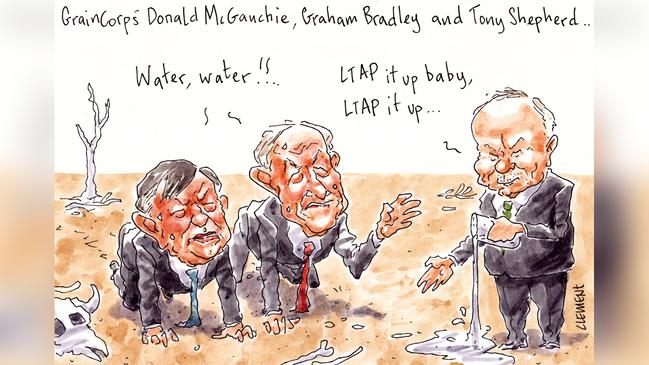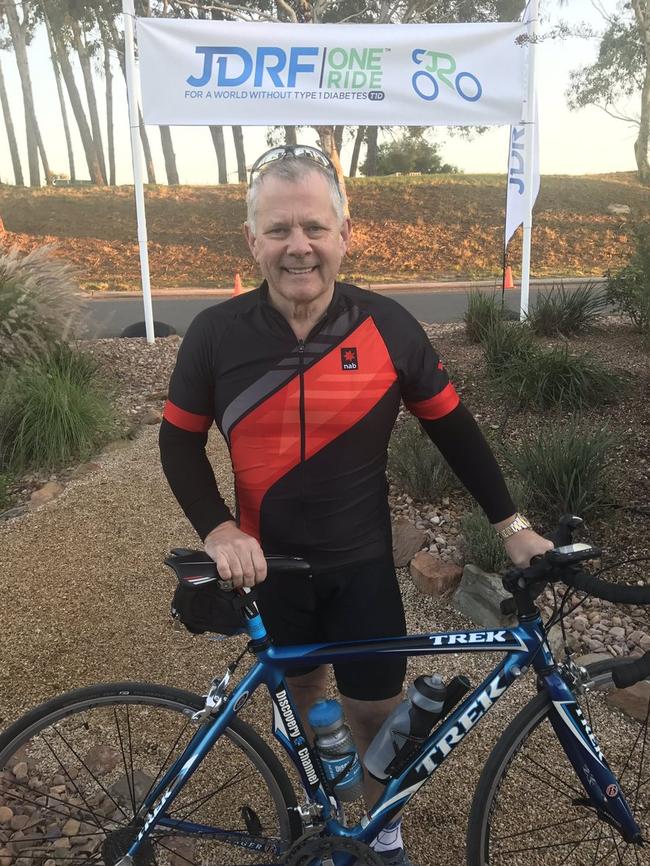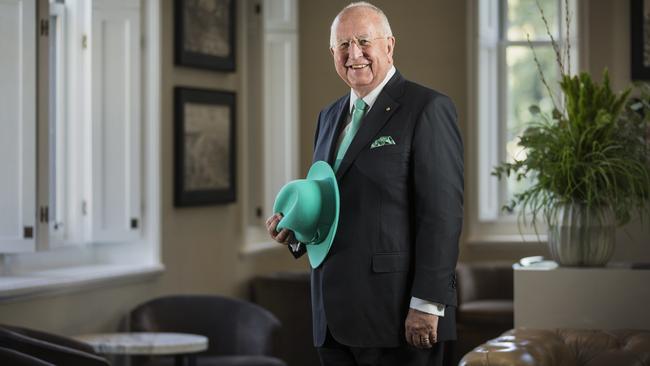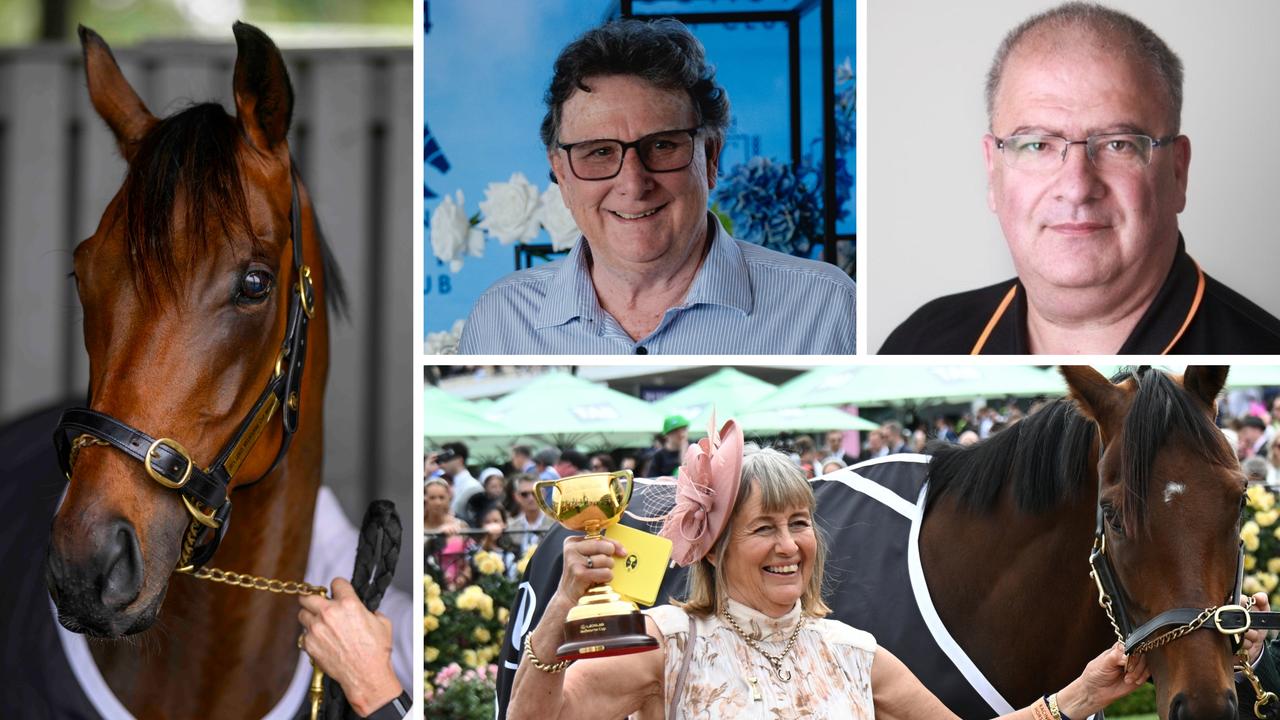Phil Chronican shapes up for NAB top job

News from the good burghers of Mosman: NAB’s man-of-the-moment Phil Chronican has gone to CEO boot camp.
Chronican — who on March 1 officially takes over as NAB CEO from Andrew Thorburn, for now on an interim basis — has been haunting his local Fitness First. Seems it’s time to get that 62-year-old body into executive shape.
Yesterday, NAB finally shared the decisions taken by its Ken Henry-chaired board as to how it will proceed with the replacement of Henry and Thorburn, who Kenneth Hayne liberated from banking with the infamous page 411 of his royal commission report.
The 60-year-old PwC partner David Armstrong is running the chairman selection process.
Meanwhile, the 63-year-old Ann Sherry — who, handily, was on the Westpac executive team alongside Chronican back in the David Morgan era — is running the CEO selection process.
Chronican, a discreet man who keeps close counsel, hasn’t ruled himself out of either job.
After missing out to Gail Kelly on succeeding Morgan as Westpac’s CEO and then missing out to Shayne Elliott at ANZ, some see an opportunity for him to fulfil his banking destiny.
“It’s very tempting for him,” said one Chronican watcher.
“It would be the crowning achievement.”
But has he got the energy?
Margin Call understands Sherry, at this stage, does not intend to include a fitness test as part of her CEO selection process.

Beep test or not, Chronican’s gym attendance, Lycra enthusiasm and time on the slopes of Queenstown in his native New Zealand portray a man with some fuel in the tank (even if he isn’t bouncing off the walls like the, at times, alarmingly caffeinated Thorburn).
At 62, it’s true Chronican — the preferred NAB director of institutional shareholders and the obvious successor to Henry as chair, if he ruled himself out of the CEO gig — has a few more years on him than the youngsters running NAB’s big four peers.
Shockingly young is CBA’s newish CEO Matt Comyn, who at only 43 years of age was a teenager in the grunge era.
Their oldest member has been ANZ’s Elliott — spotted reading this column, good man, on a flight yesterday from Melbourne to Sydney — who is a lean 55.
And in between is Westpac’s Brian Hartzer, who yesterday turned 52 (and took a low-key approach to his celebrations, opting to not book out the entire Sydney Opera House as he did for his 50th in the more forgiving year of 2017).
So is 62 too old for a resident of Sydney’s lower north shore to run a Melbourne-headquartered bank?
Chronican will find out when he takes over properly in the coming fortnight (to deal with Sharon Cook, among other endangered species).
But one precedent his former colleague Sherry might keep in mind is that of Sam Walsh.

In 2013, when he was the Perth-based head of Rio Tinto’s iron ore business, Walsh was summoned by the global miner’s board to London.
Walsh was asked to take over the CEO gig for three years. He was 63.
It was a series of enormous writedowns — not a royal commission — that created the crisis that ended Tom Albanese’s time running Rio and cleared an unexpected path for Walsh.
The times might just suit another sixty-something balance sheet master. We’ll see.
Against the grain
Interesting to learn that, before yesterday’s annual general meeting at the Sydney Hilton, GrainCorp chair Graham Bradley called Tony Shepherd and not the other way around.
How’s that for engagement?
There’s been some criticism from GrainCorp’s largest shareholders — particularly Paul Skamvougeras’s Perpetual — that Bradley wasn’t responsive enough in his earlier dealings with the Long Term Asset Partners bidding consortium, which is chaired by Shepherd.
As had been foreshadowed by Margin Call, that unhappiness was underlined at the agribusiness’s AGM with furious votes against former Telstra chair Donald McGauchie (whose re-election was opposed by more than 37 per cent of voters) and lesser-known director Peter Richards (whose re-election was opposed by almost 40 per cent).
Ravaged by drought, GrainCorp is not in a happy place right now (which probably explains the omission of EBITDA guidance in yesterday’s presentations).
All of that has Bradley’s shareholders keenly interested in the Shepherd-chaired, Chris “Crash” Craddock-inspired, Goldman Sachs-backed $2.4 billion proposed, but not binding, bid.
The multi-billion-dollar takeover situation has also engaged much of the country’s investment bankers, as was evident in the AGM front row.
We spotted Macquarie’s David Mustrow, Blackpeak Capital’s Max Billingham and, further along, Credit Suisse’s local boss John Knox.
All three firms are working with GrainCorp’s board as it engages with Shepherd, Craddock and Christian Johnson’s Goldman Sachs team.
GrainCorp’s hired help are also preparing options for Bradley to activate if Craddock’s Big Idea crashes in a heap.
As Shepherd told Bradley in their pre-AGM phone chat, the Long Term Asset Partners proposal is “unique”.
Or as GrainCorp’s CEO Mark Palmquist told us at the meeting: “This is an unusual, unorthodox proposal.”
A binding offer requires approval from the group’s financiers Goldman Sachs and Westbourne Capital, its ratings agency, its insurer and the other mysterious partners involved in the complicated transaction.
Will Craddock get the deal away and secure his place in Australian business folklore?
It all depends on the increasingly “granular” analysis going on in the GrainCorp data room. So plenty of reason for Bradley to remain engaged — but also cautious.
Running on empty
The billionaire birthday crisis went from bad to worse.
Margin Call yesterday revealed some of the tale of woe that began billionaire investor Alex Waislitz’s boys weekend in New Zealand to celebrate his 61st birthday.
It was only thanks to retail billionaire Morry Fraid that the revellers were able to even make it across the ditch (in the appropriate style).
Due to a problem with a hydraulic hose, Waislitz’s Bombardier Global Express had to be turned back by its pilot not long after taking off from Lindsay Fox’s Essendon Airport.
Mercifully, hours later, the Waislitz posse made it to New Zealand on Air Fraid (a private jet paid for by the Anaconda outdoor and Spotlight haberdashery fortunes).
It wasn’t only golf on the Waislitz weekend agenda, but also a spot of fishing.
That’s where the second disaster struck.
Margin Call is reliably informed the boat the billionaire’s party boarded had some mechanical problems of its own. Something about running out of petrol.
It’s a wonder they made it home.


